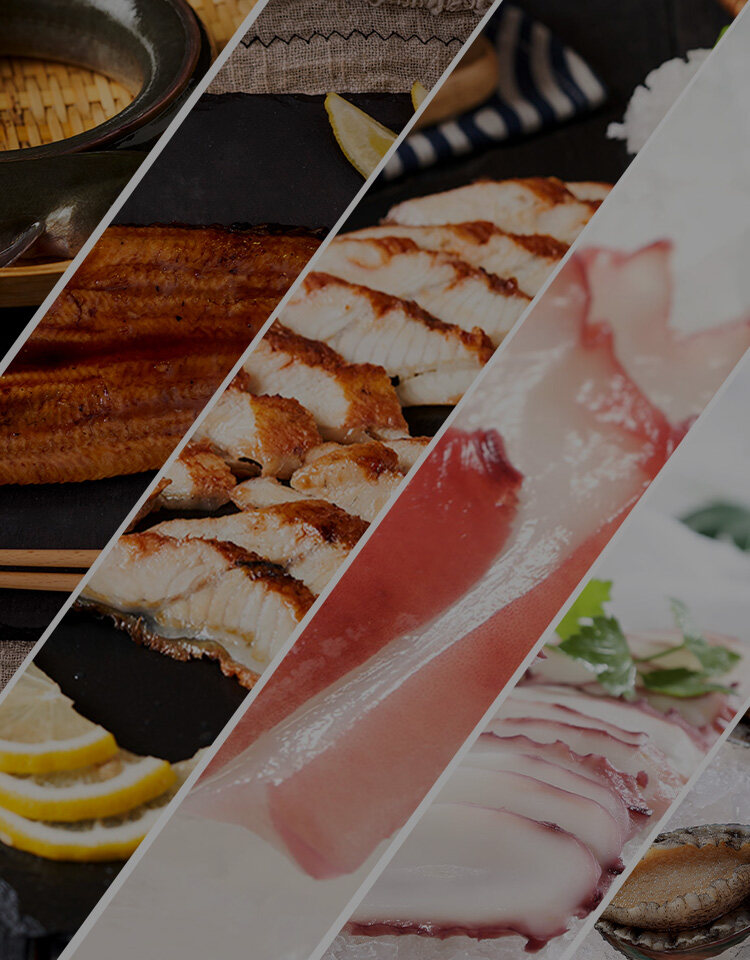Email cannot be empty
Password cannot be empty
Email format error
Email cannot be empty
Email already exists
6-20 characters(letters plus numbers only)
The password is inconsistent
Email format error
Email cannot be empty
Email does not exist
6-20 characters(letters plus numbers only)
The password is inconsistent


A Comprehensive Guide to Fish and Seafood Merchant Wholesalers
The global demand for fresh and sustainable seafood has never been higher. Consumers are increasingly seeking out high-quality fish and seafood products that are both nutritious and environmentally friendly. In this context, fish and seafood merchant wholesalers play a crucial role in connecting producers with markets, ensuring that seafood reaches consumers in prime condition. Whether you're a restaurant owner, a retailer, or simply a seafood enthusiast, understanding the role and significance of fish and seafood merchant wholesalers is essential.
What Are Fish and Seafood Merchant Wholesalers?
Fish and seafood merchant wholesalers are specialized businesses that purchase large quantities of seafood from fishermen, aquaculture farms, and processors, and then sell these products to retailers, restaurants, and other buyers. These wholesalers are responsible for the careful handling, storage, and distribution of a wide variety of seafood products, including fish, shellfish, and other aquatic delicacies.
The Role of Fish and Seafood Merchant Wholesalers in the Supply Chain
The wholesalers serve as the vital link between producers and consumers. They are responsible for sourcing seafood from diverse locations, including both local and international markets. Their role extends beyond mere distribution; they are often involved in the quality control, packaging, and sometimes even the processing of seafood products.
The Importance of Sustainability in Seafood Wholesaling
Sustainability has become a significant concern in the seafood industry. Overfishing and environmental degradation threaten many species and their habitats, making sustainable practices critical. The wholesalers who prioritize sustainability help to protect marine ecosystems while also ensuring the long-term viability of their businesses.
How Fish and Seafood Merchant Wholesalers Ensure Sustainability
Many wholesalers are adopting practices that support sustainable fishing and aquaculture. This includes sourcing from certified sustainable fisheries, supporting aquaculture operations that use environmentally friendly methods, and promoting traceability throughout the supply chain.
Selecting the Right Fish and Seafood Merchant Wholesaler
Choosing the right wholesaler is crucial for businesses that rely on a steady supply of high-quality seafood. Here are some key factors to consider:
Quality Control
One of the primary concerns when selecting a wholesaler is the quality of the products they offer. Reputable wholesalers implement rigorous quality control measures to ensure that the seafood they distribute is fresh, safe, and of the highest standard.
Variety of Products
A good wholesaler should offer a wide range of products to meet the diverse needs of their clients. Whether you're looking for common varieties like salmon and shrimp, or more specialized products like Matako Octopus Cut, a wholesaler with a broad selection can cater to all your seafood needs.
Reliable Distribution and Logistics
Effective distribution and logistics are critical in the seafood industry due to the perishable nature of the products. The wholesalers must have efficient transportation networks and storage facilities to ensure that their products reach customers in the best possible condition.
Competitive Pricing
While quality is paramount, pricing is also an important consideration. The wholesalers who offer competitive prices without compromising on quality can provide significant value to their clients.
The Impact of Globalization on Fish and Seafood Wholesaling
Globalization has had a profound impact on the fish and seafood wholesaling industry. Advances in transportation and communication technologies have made it easier for wholesalers to source seafood from around the world, expanding the variety of products available to consumers.
The Benefits of Global Sourcing
Global sourcing allows fish and seafood merchant wholesalers to offer a diverse range of products, from exotic fish to specialty seafood items that might not be available locally. This global reach also enables wholesalers to maintain a consistent supply of seafood, even when local stocks are low or out of season.
Challenges of Globalization
However, globalization also presents challenges. Wholesalers must navigate complex international regulations, manage longer supply chains, and ensure that their global suppliers adhere to the same high standards of quality and sustainability.
The Role of Technology in Modern Seafood Wholesaling
Technology is transforming the fish and seafood wholesaling industry, making it more efficient, transparent, and customer-focused.
Advances in Cold Chain Technology
Cold chain technology, which refers to the refrigerated transportation and storage of perishable goods, is essential in the seafood industry. Modern cold chain solutions help fish and seafood merchant wholesalers maintain the freshness of their products over long distances, reducing waste and ensuring customer satisfaction.
The Rise of E-Commerce in Seafood Wholesaling
E-commerce is becoming increasingly important in the seafood industry, enabling wholesalers to reach a broader audience and offer their products directly to consumers. Online platforms also allow for greater transparency, as customers can access detailed information about the origin, sustainability, and quality of the seafood they purchase.
The Future of Fish and Seafood Merchant Wholesalers
The future looks promising, with continued growth expected in both traditional and emerging markets. However, the industry will need to adapt to several key trends to remain competitive.
Increasing Demand for Sustainable and Traceable Seafood
As consumers become more aware of environmental issues, the demand for sustainable and traceable seafood is expected to rise. Fish and seafood merchant wholesalers who prioritize these aspects will be well-positioned to succeed in the future.
Technological Innovations
Technological innovations, such as blockchain for traceability and AI for demand forecasting, will likely play a significant role in the future of seafood wholesaling. Wholesalers who embrace these technologies will have a competitive edge in the market.
Adapting to Changing Consumer Preferences
Consumer preferences are evolving, with increasing interest in health-conscious and eco-friendly products. Fish and seafood merchant wholesalers who can adapt to these changing preferences by offering healthier and more sustainable options will thrive in the years to come.
Conclusion
Fish and seafood merchant wholesalers are essential players in the global seafood industry, ensuring that high-quality, fresh, and sustainable seafood reaches consumers around the world. As the industry continues to evolve, wholesalers who focus on sustainability, embrace technological advancements, and adapt to changing consumer preferences will lead the way. Whether you're a business looking for a reliable seafood supplier or a consumer seeking the best seafood options, understanding the role and importance will help you make informed decisions in this dynamic market.

